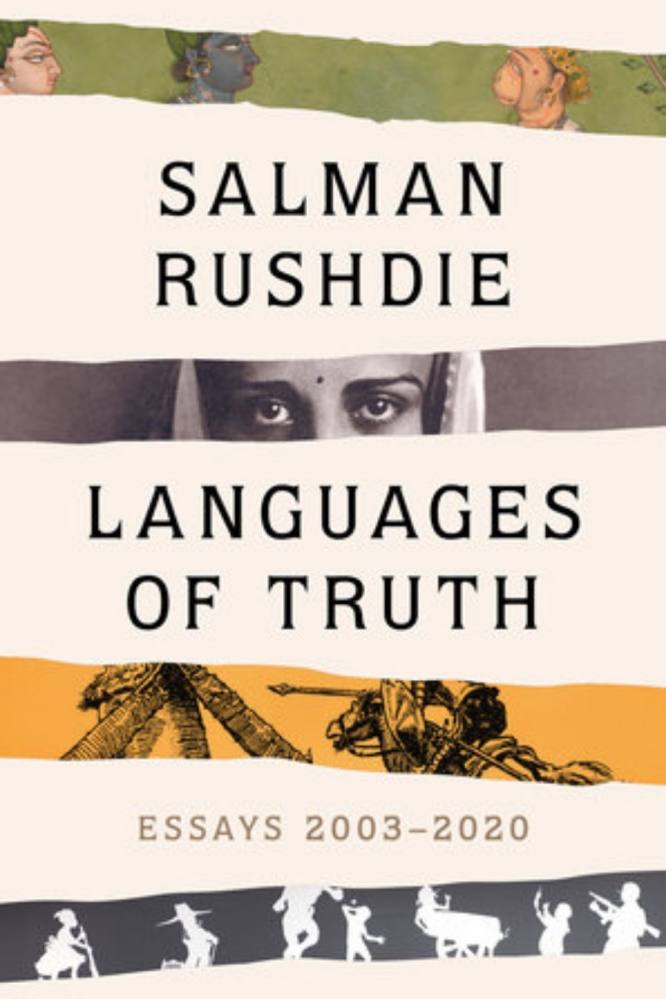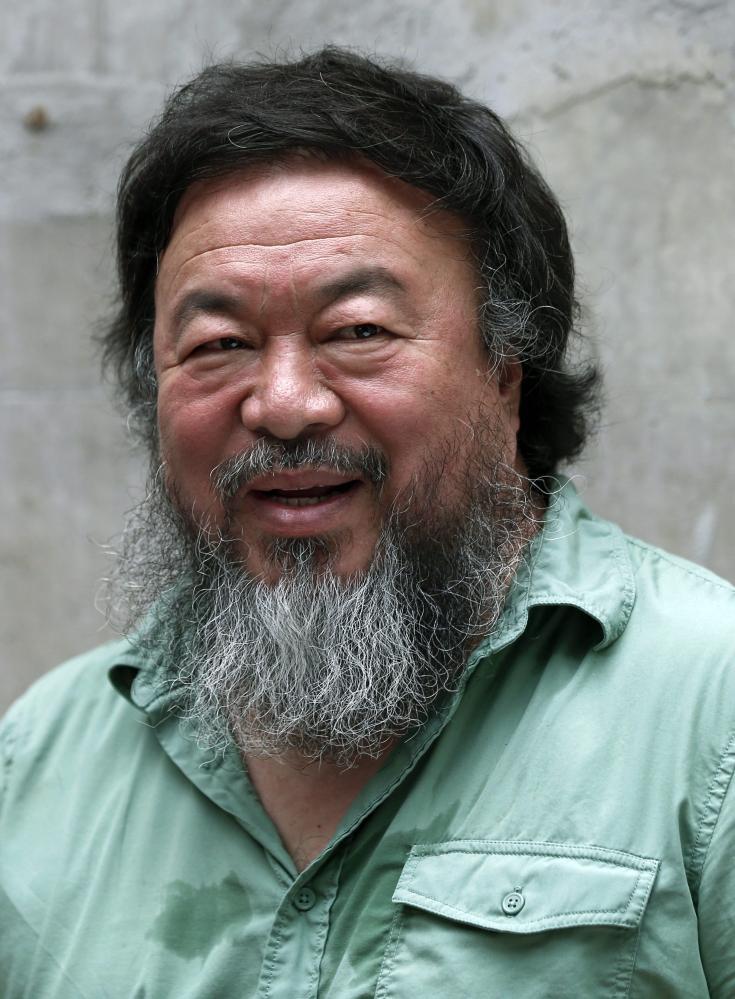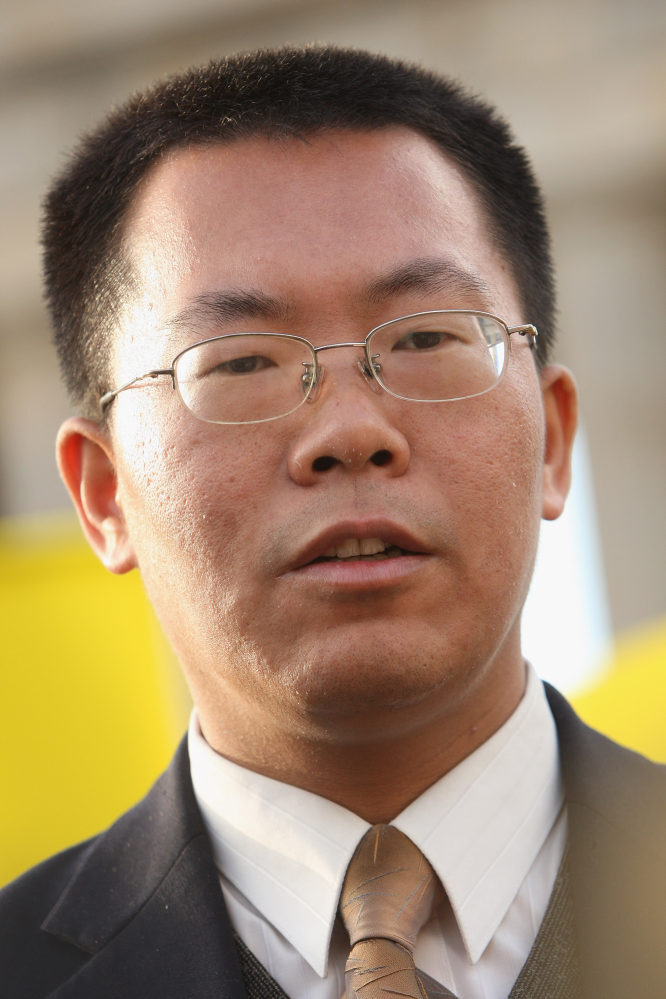
Review | Salman Rushdie’s Languages of Truth, his second non-fiction anthology, is engaging, funny and intimate
- Languages of Truth picks up where Step Across This Line left off in 2002 and is every bit as pleasurable as its predecessor
- Not short of praise, Rushdie’s real admiration is reserved for four Chinese writers brave enough to speak truth to power
Languages of Truth by Salman Rushdie, pub. Jonathan Cape
The 21st century essay collection feels like one of publishing’s weirder propositions. In one corner is the necessarily occasional content (articles written at different times about different things for different reasons); in the other is the book itself, which hopes to unify this content into a coherent, satisfying whole.
At their best, these anthologies curate an author’s scattered non-fiction output into a compact fusion of reportage, memoir, opinion and reviews. At their flagrant worst, they are the literary equivalent of a rock music B-sides album: hastily compiled pieces capitalising on a writer’s fame.
Writers don’t come much more famous than Salman Rushdie, which might explain why Languages of Truth is his second non-fiction anthology, picking up where Step Across This Line left off in 2002. Although his celebrity is, thankfully, less urgent these days, there are plenty of reasons to close-read his off-duty musings.

What might Rushdie reveal in “Autobiography and the Novel”, or appreciations of friends such as Philip Roth, Christopher Hitchens, Harold Pinter and Carrie Fisher? Did his experience of living with the fatwa help him with life in lockdown (see “Pandemic: A Personal Engagement with the Coronavirus”)?
Such insights go only so far in explaining why Step Across This Line is so engaging. For the full story, you must add the dizzying breadth of Rushdie’s enthusiasms, which whizz from The Wizard of Oz to Gandhi to U2 to “Ten Years of the Fatwa”. Languages of Truth is similarly and pleasingly diverse.
The Tiger Mom’s Tale: an author opts for melodrama
The contents promise an appreciation of “Cervantes and Shakespeare”, boyhood memories of Christmas in Mumbai, and an entire section devoted to fine art. Just as impressive are the different modes of writing: book reviews, art appreciation, memoir, lectures and, noticeably, a lot of obituaries.
Although Ai’s work is not polemical, he used his global prominence “to take up human rights cases and to draw attention to China’s often inadequate responses to disasters” (the Sichuan earthquake; the Jiaozhou Road fire, in Shanghai). The price was arrest and 81 days’ imprisonment, without charge. It is not hard to imagine Rushdie’s investment in the case, and he briefly surveys the “obloquy and derision” aimed at the public intellectual “even in free societies”.

Rushdie proves especially adept at finding wriggle room within even the most tightfitting brief, so to speak. The raison d’être of “Adaptation” is the challenge of turning a novel into a movie. Among other digressions, Rushdie considers pop music cover versions, recalls adaptations of his own work and slings a few outrageous arrows at Slumdog Millionaire (2008).
Somewhere along the way, Rushdie shifts gears, accelerating towards something larger and deeper. One minute he is writing lightly about “how Superman became super, why Batman became batty, why the Joker jokes”. The next he is meditating on humanity’s “essence” as hybridity, transformation, identity, evolution and survival: “You see that the question of adaptation is at bottom the oldest of questions: Who are we, and how shall we live?”

The graceful fluidity of Rushdie’s prose is its own reward. But it also makes a case for his catholic, liberal, open-minded tastes and his catholic, liberal, open-minded identity. “As a migrant myself,” he writes in the opening piece, “Wonder Tales”, “I have always been fascinated by the migration of stories.”
The subject at hand is fables such as the Panchatantra and the Arabian Nights. But once again, Rushdie spreads his wings to flit from the literary to the personal (the children’s stories he wrote for his own sons) and then the political: why “The Thousand Nights and One Night” continues to provoke “censorious Islamists”.
Languages of Truth is every bit as pleasurable as its predecessor. Contrary to his literary reputation, his prose is rarely flashy or opaque, but chatty, funny and intimate. Gathered in one place, his verbal tics begin to feel familiar and even endearing.
For instance, Rushdie the name-dropper: comparing Taryn Simon’s photographs to the Death Star, Patricia Cornwell, and Jackson Pollock; recalling nights out with Carrie Fisher; and hanging star-struck with Norman Mailer, Nadine Gordimer, Kurt Vonnegut and Mahmoud Darwish in 1986. What feels even more moving – whether he was writing in outrage or amusement, about love or loss – is that his passion for stories is clear and undiminished. Which just goes to show even occasional writing can aspire towards the everlasting.

